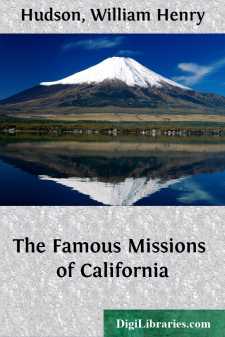History
- Africa 30
- Americas (North Central South West Indies) 50
- Ancient 68
- Asia 58
- Australia & New Zealand 8
- Canada 41
- Caribbean & West Indies 1
- Civilization 20
- Eastern Europe 12
- Europe 310
- Expeditions & Discoveries 60
- General 77
- Historical Geography 1
- Jewish 9
- Latin America 3
- Medieval 8
- Middle East 14
- Military 248
- Revolutionary 8
- Study & Teaching 5
- United States 353
- Western Europe 56
- World 13
History Books
Sort by:
ACKNOWLEDGMENTS This monograph is one of a series of research reports on the historical and architectural landmarks of Fairfax County, Virginia. It has been prepared under the supervision of the Fairfax County Office of Comprehensive Planning, in cooperation with the Fairfax County History Commission, pursuant to a resolution of the Board of County Supervisors calling for a survey of the County's...
more...
by:
John Leacock
JOHN LEACOCK Among the elusive figures of early American Drama stands John Leacock, author of "The Fall of British Tyranny," published in 1776, in Philadelphia. Even more elusive is the identification, inasmuch as his name has been spelled variously Leacock, Lacock, and Laycock. To add to the confusion, Watson's "Annals of Philadelphia," on the reminiscent word of an old resident...
more...
I. On the 1st of July, 1769—a day forever memorable in the annals of California—a small party of men, worn out by the fatigues and hardships of their long and perilous journey from San Fernandez de Villicatà, came in sight of the beautiful Bay of San Diego. They formed the last division of a tripartite expedition which had for its object the political and spiritual conquest of the great Northwest...
more...
THE DAWN OF THE MOVEMENT The sources of the Canadian Dominion must be sought in the period immediately following the American Revolution. In 1783 the Treaty of Paris granted independence to the Thirteen Colonies. Their vast territories, rich resources, and hardy population were lost to the British crown. From the ruins of the Empire, so it seemed for the moment, the young Republic rose. The issue of...
more...
THE COMING OF THE PILGRIMS The Pilgrims and Puritans, whose migration to the New World marks the beginning of permanent settlement in New England, were children of the same age as the enterprising and adventurous pioneers of England in Virginia, Bermuda, and the Caribbean. It was the age in which the foundations of the British Empire were being laid in the Western Continent. The "spacious times of...
more...
by:
Michael Doheny
CHAPTER I RETROSPECT—COMMENCEMENT OF THE REPEAL STRUGGLE. — ARLY DAYS OF THE ASSOCIATION. The appearance of this narrative will surprise no one. For apology, if any be needed, the writer may trust to his own share in the transactions with which it deals; and still more so perhaps to the misrepresentation to which, during their progress, he had been personally subjected. But personal vindication...
more...
CHAPTER I AT HOME—1914-1915 August 4th, 1914, marks the end and also the beginning of two great epochs in the history of every Territorial Unit. It marked the close of our peace training and the beginning of thirteen months' strenuous war training for the thirty-seven months which we were to spend on active service abroad. The Fiery Cross which blazed across the entire Continent caught most...
more...
by:
F. L. Morrison
FROM MOBILISATION TO THE EAST. The period from the date of mobilisation to the date on which we began our active service experiences we propose to pass over quickly, as the events which happened then seem now of small interest to those coming later. With orders prepared carefully in peace time, mobilisation went smoothly. The Normal School, Glasgow, became a barracks and a place for the busy public of...
more...
by:
John David Hills
CHAPTER 1. ENGLAND. 4th Aug., 1914.25th Feb., 1915. The Territorial Force, founded in 1908, undoubtedly attracted many men who had not devoted themselves previously to military training, nevertheless it took its character and tone from men who had seen long service in the old Volunteer Force. Hence, those who created the Territorial Force did nothing more than re-organise, and build upon what already...
more...
by:
Allen Johnson
"ON TO CANADA!" The American people of today, weighed in the balances of the greatest armed conflict of all time and found not wanting, can afford to survey, in a spirit of candid scrutiny and without reviving an ancient grudge, that turbulent episode in the welding of their nation which is called the War of 1812. In spite of defeats and disappointments this war was, in the large, enduring...
more...











